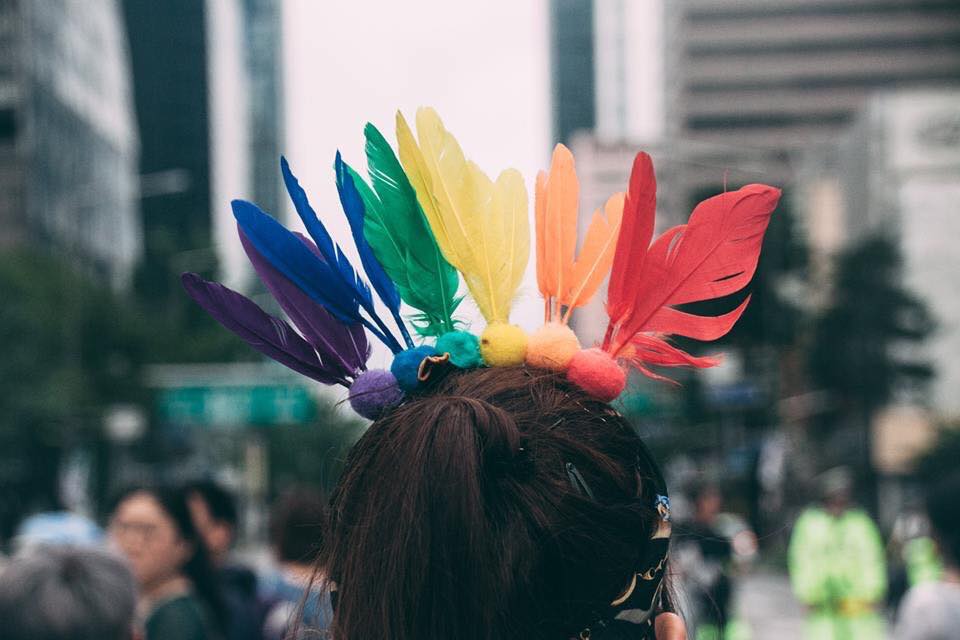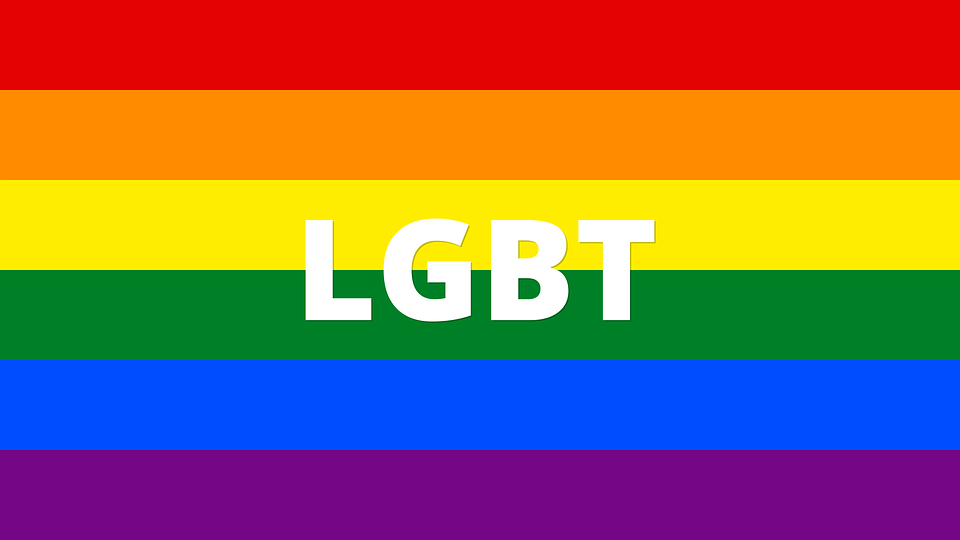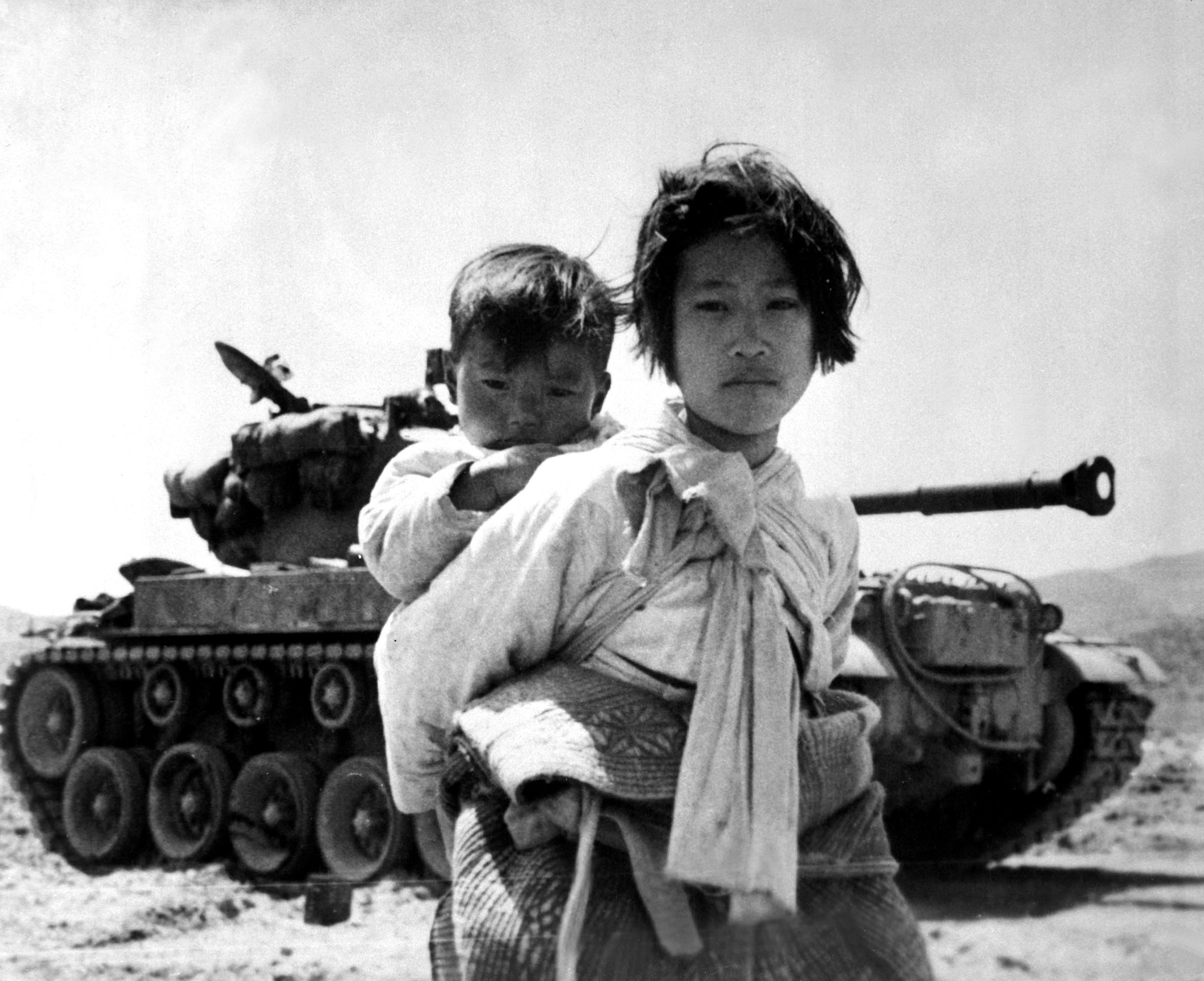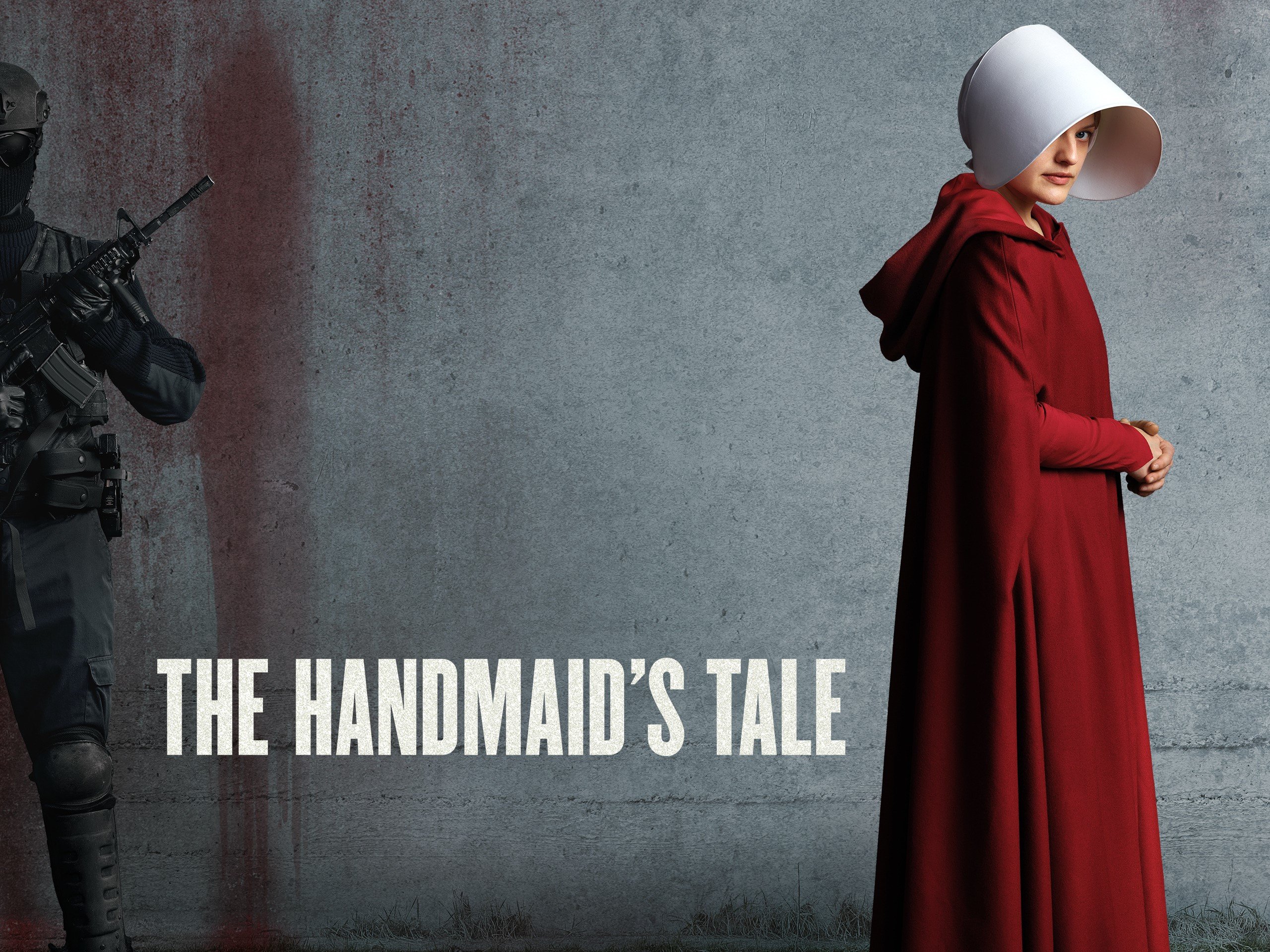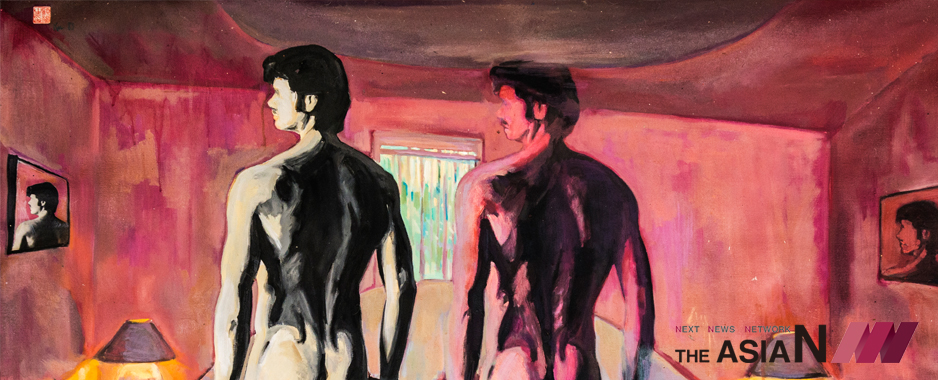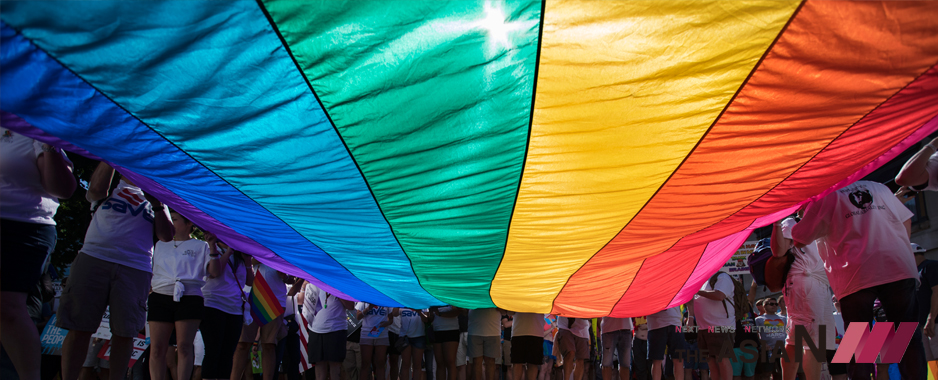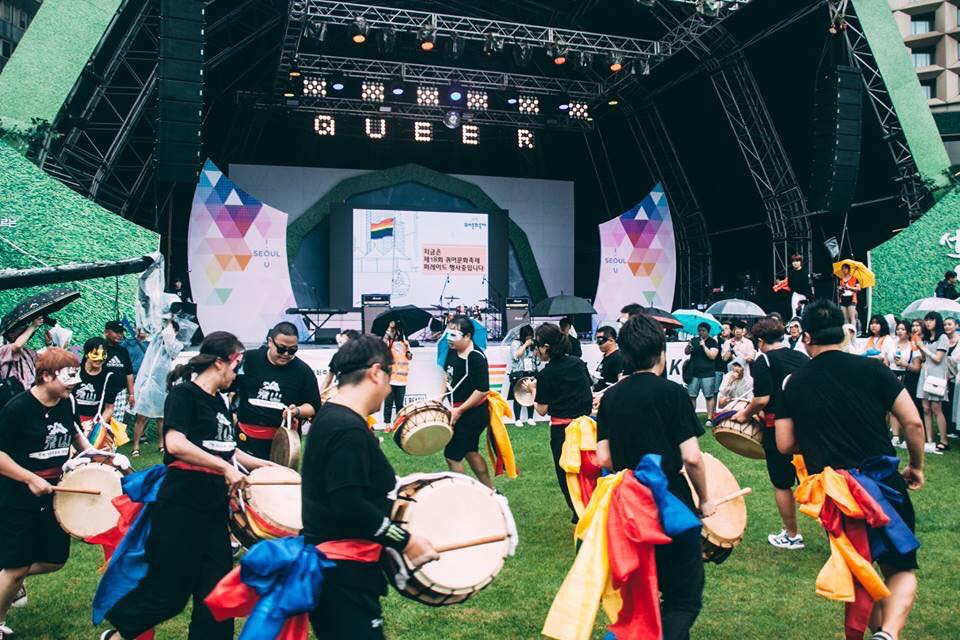
LGBTQ+ Identities
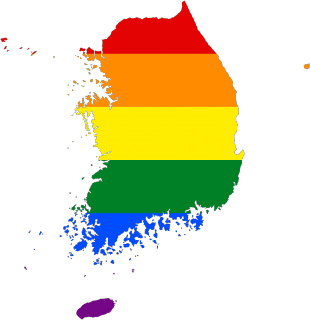 Inside a building in Mangwon, Seoul, I met with Kang Myeong-jin, Chief Organizer of the Seoul Queer Culture Festival. He explained to me details about the event and the current situation of the LGBT community in Korea. We talked about continuing issues and cultural taboos, touching on the long road to real and effective LGBT rights in the nation.
Inside a building in Mangwon, Seoul, I met with Kang Myeong-jin, Chief Organizer of the Seoul Queer Culture Festival. He explained to me details about the event and the current situation of the LGBT community in Korea. We talked about continuing issues and cultural taboos, touching on the long road to real and effective LGBT rights in the nation.
Can you describe how the festival is organized?
There are two main projects inside the event: the gay parade and the queer film festival. Both occur during the same period, but in different facilities and within a couple of days apart of each other. Movies to be shown are selected by the Seoul Queer Culture Festival organizing committee, and we generally look for films that depict the lived experiences and relevant issues surrounding the LGBT community. We also promote an online voting system for both Korean and international movies to help those interested participate in the selection process.
Who are the sponsors of this event? Has the Korean government supported the event through funds?
The total amount of funds that goes into each festival, minus the money that is given to staff, amounts to around 200,000,000 won. No funds are being provided by the government; they are all private funds from private organizations and individuals who are interested in the festival and want to help.
Is the Seoul Queer Culture Festival Organizing Committee collaborating with other associations?
The event itself is such a collaborative effort; it’s a platform for people to get together and unite under a single vision for LGBT rights. But as in organization and planning, we also collaborate with other Korean LGBT and human rights associations. On the same note, we regularly keep in touch with other Queer Culture Parade movements outside of Korea—we support our friends in Tokyo and Taipei and they also support us by attending our own parade. Again, it’s a movement that facilitates solidarity amongst those in attendance and we are in constant contact with relevant communities such as women’s rights associations and labor organizations, etc.
What is the current situation of LGBT members in South Korea?
Well, the way you look at the matter changes the answer, but as far as politically or when organizing official events, LGBT members are frequently having to face backlash and challenges. These people are not really considered part of the Korean community, so getting things done on that end is difficult. At a personal level, the situation is double-sided. Some LGBT members like the fact that the community is getting more attention through the big events and social movements. Meanwhile, others don’t want the spotlight on them; to them, it’s just a matter of privacy that the world shouldn’t be obliged to know about. It’s simply the difference of the day and nightlife—their sex life is their choice and does not need to become a social issue. Overall, I would say that LGBT individuals are becoming more comfortable about speaking up for their rights.
Can you explain the kind of discrimination LGBT members often face in Korea?
It depends on the person, but in general, when they come out, many of them tend to be separated from their communities whether by their families, friends, the church, and so on. The larger part of society is unwilling to accept these people. But of course, there are also those who experience a smoother transition after coming out because their families are open-minded and do not think negatively about homosexuality.
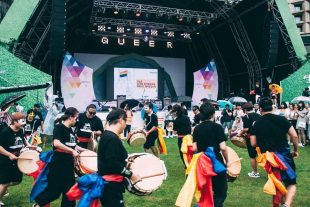 There is another level of discrimination in the workplace, though, because of the way people will start to look at an LGBT member. The general and most accepted course of life as a Korean is very limiting: you go to school, you get a job, you make money, get married, have children. This is what people talk about and how they get to know each other in the work setting. But as soon as a person comes out, colleagues will not take that as easily as they should. That’s why a lot of people avoid coming out in the workplace. It’s usually impossible to make one’s way up in the ranks if they come out as gay. It doesn’t work like that most of the time.
There is another level of discrimination in the workplace, though, because of the way people will start to look at an LGBT member. The general and most accepted course of life as a Korean is very limiting: you go to school, you get a job, you make money, get married, have children. This is what people talk about and how they get to know each other in the work setting. But as soon as a person comes out, colleagues will not take that as easily as they should. That’s why a lot of people avoid coming out in the workplace. It’s usually impossible to make one’s way up in the ranks if they come out as gay. It doesn’t work like that most of the time.
I also want to mention issues related to the school environment. The situation there is worse because teachers and administrative faculty in Korean schools go out of their way to search for and pick out gay/lesbian students. Once they hear of any rumors from the kids, they’ll ramp up their search and find the person or couple, to expel them. It recently happened in an all girls’ school where there was a lesbian couple. Both students were expelled. You’d be surprised, but there aren’t any official laws penalizing discriminatory behavior. This also happens in the army.
Do you think the common perception about LGBT people will improve under Moon Jae-in’s government?
This government is more progressive than the previous one, but I don’t think it has a genuine desire to change social perceptions on matters regarding minority rights. I would say that Moon’s administration does not feel the need to create pro-LGBT laws or for other minorities. It’s weird because you would think the government would lead the nation on matters such as these, but the government has always said things such as, “Society is not ready for change—when Korea has changed, we will follow with legal action”.
What do you think the government should do to help the LGBT community in Korea?
In the past, whenever a particular resolution of this issue was at the threshold of being passed, it would just close. The matter is folded without further explanation. I’m guessing because progressive politicians are afraid to lose votes from the country’s conservative faction.
Even when the government was asked by the UN about Korea’s position on human rights and gay rights, they did not express any opinions. The answer is basically that such things are highly sensitive and not urgent enough to be dealt with immediately. I mean, being gay or transgender is not illegal in Korea, so that’s good. But the government does nothing to protect the community of their rights, either.
Apart from the Korean Queer Festival, are there other occasions in which the Korean LGBT community come together?
For now, the biggest movement is the Seoul Queer Cultural Festival because of its sheer size. However, more recently, larger scale events branched out nationwide. For example, this year, the Queer Culture festival will also take place in several regions around Korea.
 In your opinion, is the festival a useful way for addressing the discrimination against LGBT members?
In your opinion, is the festival a useful way for addressing the discrimination against LGBT members?
I can’t say that it will be a direct solution, politics-wise. However, it is one of the main opportunities that people have to raise awareness about LGBT rights. We usually get around 400-500 press coverages on the festival itself, negative and positive; the conservative outlets tend to describe one aspect of the parade to feed prejudices and gossip, but there are also more positive coverages. Most are neutral.
Do Korean celebrities support the LGBT community?
I can’t give a specific answer of who and how many because it’s hard for celebrities to publicly support gay rights what with the general perception. There definitely have been celebrities who supported LGBT rights in a personal capacity either through private concerts—some musicians and bands participate in our festival—or through their SNS accounts. But we don’t have the time to check all of their individual profiles.
What are the words and/or expressions used to insult LGBT people?
There are words like ddong–ggo–chung (chung, meaning, worm/insect, is often used as a derogatory suffix), which, directly translated means “ass worm”. But usually, people will not use a specific word to offend LGBT members. During gay pride events, you can see some people picketing on the sidelines holding signs like, “Anal sex is wrong.” In Korea, homosexuality is generally associated with males and thus, anal sex. Females rarely come out as lesbians because of the social impact of being a female (already somewhat vulnerable) and homosexual. The fact that people even mention sex, or anal sex, is offensive because “sex” itself is such a taboo in Korean society. Mentioning it in protest is a direct way to offend gay members.
What is the relation between the LGBT community and religious-related associations?
It is not really a relationship, it is a reaction and response interaction. Before, megachurches raised their opinions that homosexuality is wrong and have criticized LGBT members. But that actually raised more awareness for the group, which was not the effect the church anticipated. Since then, many churches have stayed quiet about gay events although some secretly pay people to picket beside movements.
In 2017, the Museum of Contemporary Art, Taipei (MOCA, Taipei), presented “Spectrosynthesis – Asian LGBTQ Issues and Art Now”, a big exhibition related to the LGBT issue. In your opinion, can art increase awareness about the LGBT community?
Would you like to see a similar project in Korea? I personally think it is very important to raise awareness through these projects that tell people about homosexuality and LGBT rights. The only way to push for equal rights is to talk and communicate these things. In whatever shape or form, platforms for raising awareness are key to helping the LGBT community. We had planned art exhibitions related to the queer festival, but unfortunately, many didn’t last for very long. Last year, the Taiwanese court legalized gay marriage.
Do you think South Korea will follow this example soon?
Soon? (Laughing). The environment in Taiwan seemed more open to gay marriage. I expected it to happen there, though I was surprised at just how soon it did. As to Korea, the current administration is showing a more conservative stance on LGBT rights, so I have absolutely no idea when gay marriage will be legalized here.
At the end of interviews, I usually ask if the person I am speaking with wants to add anything more. This time, Mr. Kang said some very important words: “I would like to add that around Asia there are many countries in which LGBT rights do not exist at all and homosexuality is illegal. People may think that in South Korea the situation is not that severe because LGBT lives are not threatened. However, there are similarities between Asian countries such as the importance of families and communities; here is where the difficulties start. Homosexuals are often ostracized from their loved ones. And the results can be tragic. People around Asia can come together knowing this fact and think of ways to improve the situation. Moreover, I would like to say that in Korea, and in other Asian countries, there are people who define themselves as progressive because they say ‘You can be gay, I don’t have a problem with that. But I don’t know any homosexuals around me, among my family or friends’. Well, if that is the case, you should probably look back on the type of environment you find yourself in or the type of perception you have because whether you may have noticed, LGBT people are around you, inside the society. And rather than feeling sorry or thinking that homosexuality is something different and weird, just consider LGBT people as part of your community. Maybe they are your family or your coworkers, so maintain those relationships. Respect and support them”. -Reporters Note
Alessandra Bonanomi, reporter for The AsiaN



